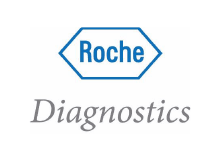
Course Description
AIMS/OBJECTIVES
The aim is to promote the knowledge and expertise in microbiology with a particular focus on medical virology. Graduates will develop an understanding of the scientific basis of established and novel medical virology concepts, as well as the specialist knowledge, practical skills and critical awareness required to enable graduates to pursue a career in medical virology.
The specific aims/objectives are to:
-
Provide knowledge in clinical virology;
-
Develop understanding of processes at the molecular level;
-
Provide a training in laboratory and research skills;
-
Provide a supportive learning environment;
DATES
9-13TH MAY (theoretical)
16-20th MAY (practical)
Course Venue
Portuguese Oncology Institute of Porto (IPO Porto FG EPE), Porto, Portugal
CRITERIA FOR ADMISSION
The minimum qualification for admission is a Honours degree in a Science-based subject from a Portuguese academic institution or an equivalent overseas qualification.The course is suitable for graduates in: Microbiology, Virology, Medical laboratory sciences, Medicine, Veterinary medicine, Dentistry, Pharmacy, and other biology degrees with an element of microbiology.
LEARNING OUTCOMES:
1) Knowledge and Understanding
-
fundamentals of molecular and viral biology;
-
the structure of viruses and their genomes;
-
virus gene expression, modes of replication and transmission,
-
the interaction of viruses with cells and pathogenesis of virus-induced diseases,
-
the detection, treatment and prevention of virus infections;
-
virus epidemiology and the genetics and evolution of viruses.
2) Intellectual Skills and other Attributes
-
understand the nature of viruses and their role in disease pathogenesis;
-
integrate and evaluate information and data from a variety of sources;
PROGRAME STRUCTURE:
This unit is comprised of four elements:
-
Taught component which will be given over the first week of the course;
-
Laboratory environment week (4days) which includes a visit to a virology lab and laboratory practical classes (hands on);
-
Oral presentation of a research manuscript (student will choose a manuscript to present to colleagues) which will be assigned a mark;
-
Exam that comprise knowledge from all taught components; The Pass Mark is 9.5/20.
EVALUATION
10% Continuous Education + 40% Oral presentation + 50% Exam
CONTENTS
-
Introduction to Virology: Principles of Virology (Taxonomy, Phylogeny), Principles of Virus Structure, Virus Entry and Uncoating, Virus Replication Strategies, Virus Assembly, Virus evolution…
-
Diagnostic tools in virology: Serological tests, Enzimatic assays, Molecular Tests, Microscopy, Cell Culture
-
Treatment and Prevention of viral infections: Pharmacological agents, Vaccines, Immunotherapies for Viral prevention
-
Respiratory infections: Influenza, Respiratory Syncytial Virus, Parainfluenza, Metapneumovirus, Rhinovirus, Adenovirus, Coronavirus…
-
Hepatitis: Hepatitis B Virus, Hepatitis C Virus
-
Viral gastroenteritis: Rotavírus. Norovírus e sapovírus. Astrovírus. Aichivirus.
-
Enteric Viruses: Enteroviruses (Poliovirus, Coxsackie A/B), Echovirus, Hepatitis A Virus, Reovirus, Rotavirus, Adenovirus, Caliciviruses (Human Calicivirus, Norwalk Virus, Hepatitis E), Astrovirus, Parvovirus, Coronavirus, Torovirus
-
Human retroviruses: Human T Leukaemia Virus, Human Immunodeficiency Virus
-
Emerging Viruses: Measles, Ebola, Marburg Viruses, Monkeypox, Arenaviruses, Coronaviruses, Bunyaviruses, Hendra/Nipah viruses, West Nile Virus, Dengue Virus, Rift Valley Fever Virus, Venezuealan Equine Encephalitis virus, Poxvirus, Yellow fever, Crimean Congo Hemorrhagic fever virus
-
Congenital infections: Cytomegalovirus, Measles, Parvovirus, Rubellavius. Herpes Simplex 1 and 2, Herpes Zoster virus, Entero/Parechoviruses, Hepatitis viruses, HIV…
-
Transplant-associated viral infections: Herpesvirus, Poliomavirus…
-
Virus and Cancer: Human Papillomavirus, Epstein-Barr Virus, Hepatitis B, HTLV…
-
Virus as therapeutical agents: Lentiviral Vectors to Treat Immune Deficiencies, Adenoviral and AAV vectors
-
Clinical cases discussion








